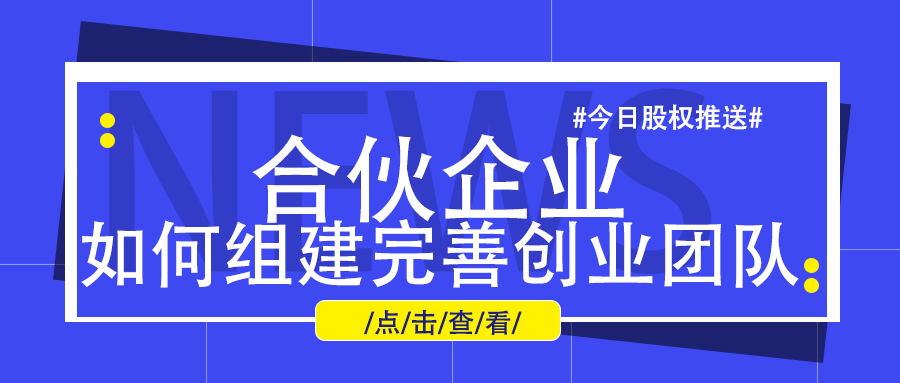

公司動(dòng)態(tài)
股權(quán)激勵(lì)Equity incentive
一股獨(dú)大,,利益共享的主體公司的設(shè)置要點(diǎn)
發(fā)布時(shí)間:2024-01-28 來(lái)源:http://zyvd.cn/
股權(quán)激勵(lì)的本意是通過(guò)激勵(lì)機(jī)制,,使得企業(yè)老板與員工共同分享企業(yè)發(fā)展的成果,,同時(shí)讓大家成為企業(yè)的主人,,調(diào)動(dòng)員工積極性和提開員工歸屬感。但股權(quán)激勵(lì)絕不意味著“股散人散”,,事實(shí)上任何一個(gè)公司如果股權(quán)太過(guò)干分散,,進(jìn)人資本市場(chǎng)以后企業(yè)的控制權(quán)必然會(huì)產(chǎn)生隱患,從而對(duì)企業(yè)經(jīng)營(yíng)造成惡劣的影響,。因此在進(jìn)行股權(quán)激勵(lì)時(shí),,不僅要考慮目的性與激勵(lì)性,企業(yè)的控制權(quán)一樣需要在方案剛開始設(shè)計(jì)時(shí)就設(shè)計(jì)好架構(gòu),。公司需規(guī)定拿出多少用于員工微勵(lì),,多少用于日后預(yù)留,以及需要多少股份作為控股公司增強(qiáng)企業(yè)的控制權(quán),。
The original intention of equity incentives is to use incentive mechanisms to enable business owners and employees to share the achievements of enterprise development, while also making everyone the masters of the enterprise, mobilizing employee enthusiasm and enhancing employee sense of belonging. However, equity incentives do not necessarily mean "scattered stocks and scattered individuals". In fact, if any company's equity is too dry and scattered, entering the capital market will inevitably create hidden dangers in the control of the enterprise, thereby causing adverse effects on the operation of the enterprise. Therefore, when conducting equity incentives, not only should the purpose and incentive be considered, but the control rights of the enterprise also need to be well structured at the beginning of the plan design. The company needs to specify how much to allocate for employee incentives, how much to reserve for future use, and how many shares are needed as a holding company to enhance control of the enterprise.
根據(jù)我們多年的經(jīng)驗(yàn),,好的股權(quán)激勵(lì)方案應(yīng)”一股獨(dú)大,利益共享”,,即以控股機(jī)制為基礎(chǔ),,以資本運(yùn)作為導(dǎo)向。激發(fā)員工內(nèi)部創(chuàng)業(yè)和創(chuàng)富的潛力,??偟膩?lái)說(shuō),在股權(quán)布局中,,要考慮好主體公司,,控股公司、持股公司,、分/子公司的架構(gòu)設(shè)計(jì)問題,。
Based on our years of experience, a good equity incentive plan should be based on a controlling mechanism and guided by capital operations, with one shareholder dominating and sharing benefits. Stimulate the potential for internal entrepreneurship and wealth creation among employees. Overall, in equity layout, it is necessary to consider the structural design issues of the main company, holding company, holding company, and branch/subsidiary companies.
主體公司
Subject company
在設(shè)立主體公司及劃分業(yè)務(wù)層級(jí)時(shí),既要考慮盈利又要考慮長(zhǎng)期性,。因此,,可以將公司的業(yè)務(wù)分為基礎(chǔ)業(yè)務(wù)、發(fā)展業(yè)務(wù)和機(jī)會(huì)業(yè)務(wù),。
When establishing the main company and dividing business levels, both profitability and long-term sustainability should be considered. Therefore, the company's business can be divided into basic business, development business, and opportunity business.

主體公司的實(shí)質(zhì)是企業(yè)的未來(lái)上市主體與業(yè)務(wù)經(jīng)營(yíng)主體。擁有一個(gè)業(yè)務(wù)良好的主體公司,,將相關(guān)業(yè)務(wù)吸收到主體中,,不僅可以有效發(fā)揮集團(tuán)的協(xié)同效應(yīng),,而且IPO后更容易受到資本市場(chǎng)的青睞。因此,,,,我們?cè)诳紤]主體公可時(shí),除了一些資質(zhì),、稅收,、優(yōu)惠政策之外,主體公司的業(yè)務(wù)情況也是需要考慮的因素之一,。
The essence of the main company is the future listing entity and business operation entity of the enterprise. Having a well performing entity company that incorporates relevant business into the entity can not only effectively leverage the synergies of the group, but also make it more likely to be favored by the capital market after an IPO. Therefore, when considering the subject company, in addition to some qualifications, taxes, and preferential policies, the business situation of the subject company is also one of the factors that need to be considered.
此外,,企業(yè)在上市后,還經(jīng)常涉及主體公司進(jìn)行一部分股權(quán)收購(gòu)和資產(chǎn)收購(gòu)的問題,,這里的主體和客體在法律和經(jīng)濟(jì)層面上也會(huì)存在諸多差異,。
In addition, after a company goes public, it often involves the acquisition of some equity and assets by the main company, and there are also many differences in the legal and economic aspects between the subject and object.
1》主體和客體不同
1》 Subject and object are different
股權(quán)收購(gòu)的主體是收購(gòu)公司和目標(biāo)公司的股東,客體是月標(biāo)公司的股權(quán),,資產(chǎn)收購(gòu)的主體是收購(gòu)公司和目標(biāo)公司,,客體是控股公司的資產(chǎn)
The subject of equity acquisition is the shareholders of the acquiring company and the target company, the object is the equity of the monthly target company, the subject of asset acquisition is the acquiring company and the target company, and the object is the assets of the holding company
2)者的負(fù)債風(fēng)險(xiǎn)不同
2) The debt risk of individuals varies
股權(quán)收購(gòu)后,收購(gòu)公司成為目標(biāo)公司控股股東,。收購(gòu)公司僅在出資范圍承擔(dān)責(zé)任,,目標(biāo)公司的原有債務(wù)由目標(biāo)公司承擔(dān),但因?yàn)槟繕?biāo)公司的原有債務(wù)對(duì)今后股東的收益有著巨大的影響,,因此在股權(quán)收購(gòu)前,,收購(gòu)公司必須調(diào)查清楚目標(biāo)公司的債務(wù)狀況。在收購(gòu)時(shí)往往難以預(yù)料目標(biāo)公司的債務(wù)狀況,,因此,,股權(quán)收購(gòu)存在一定的負(fù)債風(fēng)險(xiǎn)。而在資產(chǎn)收購(gòu)中,,資產(chǎn)的債權(quán),、債務(wù)情況一般比較清晰,除了一些法定責(zé)任外,,如環(huán)境保護(hù),,職工安置,基本不存在或存有負(fù)債的問題,。因此,,資產(chǎn)收購(gòu)關(guān)注的是資產(chǎn)本身的債權(quán)、債務(wù)情況,。
After the equity acquisition, the acquiring company becomes the controlling shareholder of the target company. The acquiring company only bears responsibility within the scope of capital contribution, and the original debt of the target company is borne by the target company. However, because the original debt of the target company has a huge impact on the future earnings of shareholders, the acquiring company must investigate the target company's debt situation before equity acquisition. It is often difficult to predict the target company's debt situation during acquisitions, therefore, equity acquisitions carry certain debt risks. In asset acquisition, the creditor's rights and debt situation of assets are generally clear, and apart from some legal responsibilities such as environmental protection and employee resettlement, there are basically no or existing debt issues. Therefore, asset acquisition focuses on the creditor's rights and debt situation of the asset itself.
3)兩者還存在稅收方面的差異
3) There are still tax differences between the two
在股權(quán)收購(gòu)中,,納稅義務(wù)人是收購(gòu)公司和目標(biāo)公司的股東,與目標(biāo)公司無(wú)關(guān),。除了合同印花稅外,,根據(jù)《關(guān)于企業(yè)股權(quán)投資業(yè)務(wù)若干所得稅問題的通知》的規(guī)定,,目標(biāo)公司股東可能因股權(quán)轉(zhuǎn)讓所得繳納所得稅。在資產(chǎn)收購(gòu)中,,如果納稅義務(wù)人是收購(gòu)公司和目標(biāo)公司,,還需繳納增值稅。
In equity acquisitions, taxpayers are shareholders of both the acquiring company and the target company, and are not related to the target company. In addition to contract stamp duty, according to the Notice on Several Income Tax Issues Concerning Enterprise Equity Investment Business, shareholders of the target company may pay income tax on income from equity transfer. In asset acquisition, if the taxpayer is the acquiring company and the target company, value-added tax is also required to be paid.
本站聲明
本網(wǎng)站為非營(yíng)利性網(wǎng)站,旨在宣揚(yáng)股權(quán)知識(shí),,交流職業(yè)學(xué)習(xí)心得,。網(wǎng)站內(nèi)部分文章來(lái)自其它網(wǎng)站,只做交流學(xué)習(xí)之用,。相應(yīng)的權(quán)力均屬于原權(quán) 力人,,如權(quán)利人認(rèn)為不妥,請(qǐng)來(lái)電來(lái)函說(shuō)明,,本網(wǎng)站隨既停止或使用,,謝謝合作! 13698613138
13698613138
微信公眾號(hào)

掃碼獲知更多知識(shí)

抖音二維碼
山東股章企業(yè)管理顧問有限公司 備案號(hào):魯ICP備19050574號(hào)-2 網(wǎng)站建設(shè)·推廣運(yùn)營(yíng) 網(wǎng)站地圖 XML TXT

截屏,,微信識(shí)別二維碼